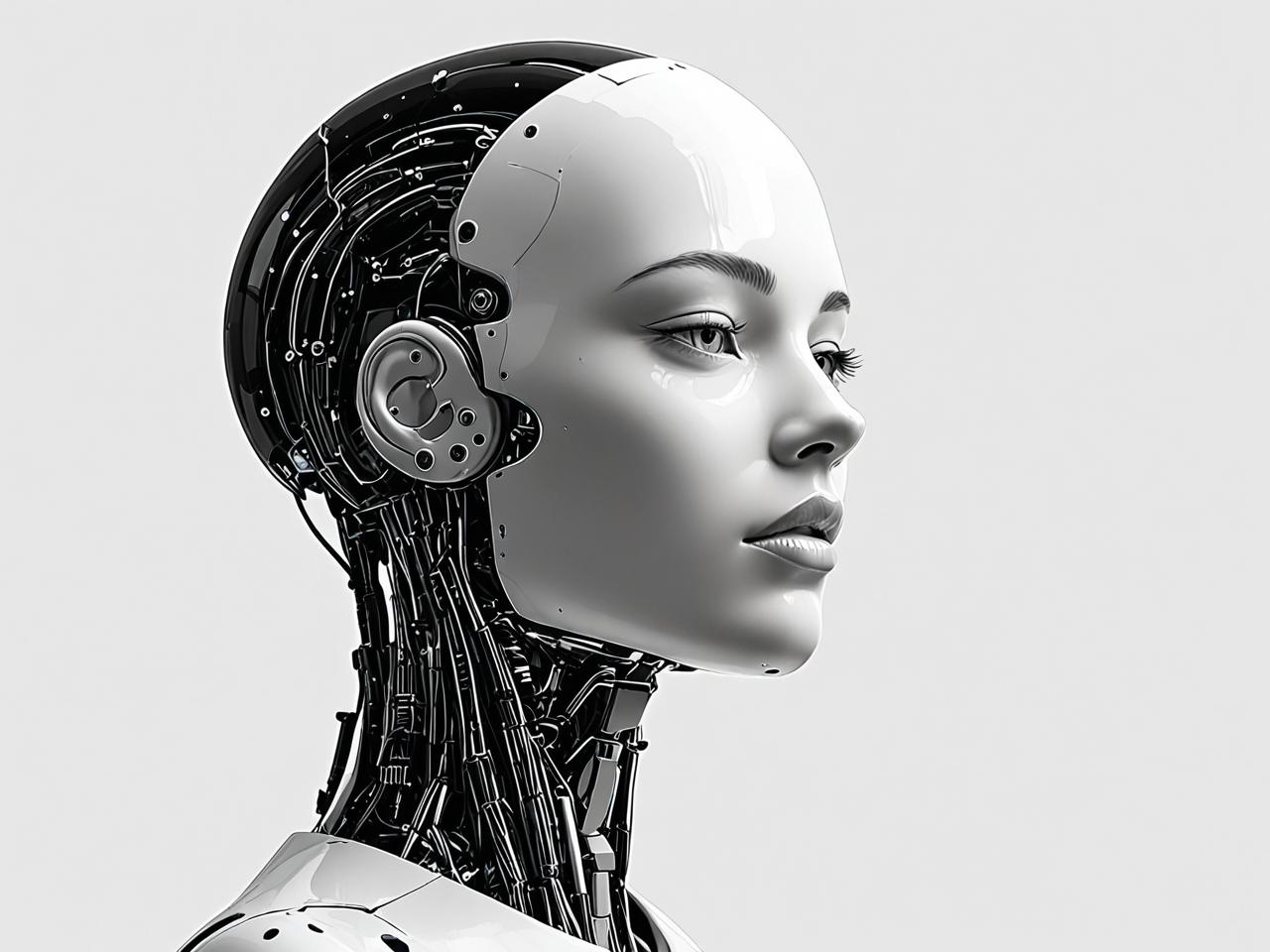本文目录导读:
- Introduction
- What Is Artificial Intelligence (AI)?
- How Does AI Work?
- Types of AI
- Real-World Applications of AI
- Benefits of AI
- Challenges & Concerns
- The Future of AI
- Conclusion
Introduction
Artificial Intelligence (AI) is one of the most talked-about technologies today. From virtual assistants like Siri and Alexa to self-driving cars and chatbots, AI is changing the way we live and work. But what exactly is AI? How does it work? And why is it so important?
In this article, we will break down AI in simple terms, explaining its key concepts, how it functions, and its real-world applications. Whether you're a beginner or just curious about AI, this guide will help you understand it without needing a technical background.
What Is Artificial Intelligence (AI)?
Artificial Intelligence refers to machines or computer systems that can perform tasks that typically require human intelligence. These tasks include:
- Learning (recognizing patterns from data)
- Reasoning (making decisions based on logic)
- Problem-solving (finding solutions to complex issues)
- Understanding language (speech recognition, translation)
- Perception (recognizing images, sounds, or objects)
AI is not just about robots—it’s about software and algorithms that make computers "smart."
How Does AI Work?
AI works by processing large amounts of data and using algorithms (step-by-step instructions) to find patterns and make decisions. The key components of AI include:

Machine Learning (ML)
Machine Learning is a subset of AI where computers learn from data without being explicitly programmed. For example:
- Recommendation Systems (like Netflix suggesting movies)
- Spam Filters (Gmail detecting junk emails)
- Fraud Detection (banks identifying suspicious transactions)
Deep Learning (DL)
Deep Learning is a more advanced form of ML that uses artificial neural networks (inspired by the human brain) to analyze complex data. Examples include:
- Facial Recognition (unlocking phones with Face ID)
- Voice Assistants (Alexa understanding spoken commands)
- Self-Driving Cars (recognizing traffic signs and pedestrians)
Natural Language Processing (NLP)
NLP helps computers understand and generate human language. Applications include:
- Chatbots (customer service bots)
- Translation Tools (Google Translate)
- Sentiment Analysis (determining if a review is positive or negative)
Types of AI
AI can be categorized into three main types based on capabilities:
Narrow AI (Weak AI)
- Designed for specific tasks (e.g., facial recognition, chess-playing AI).
- Most AI today falls under this category.
General AI (Strong AI)
- Hypothetical AI that can perform any intellectual task a human can.
- Does not yet exist but is a goal for future research.
Super AI
- AI that surpasses human intelligence in all areas.
- Still a theoretical concept (often seen in sci-fi movies).
Real-World Applications of AI
AI is already transforming various industries:
Healthcare
- Diagnosis Assistance (AI helps doctors detect diseases like cancer early).
- Drug Discovery (AI speeds up the development of new medicines).
Finance
- Fraud Detection (AI spots unusual transactions in real time).
- Algorithmic Trading (AI makes stock market predictions).
Retail & E-Commerce
- Personalized Recommendations (Amazon suggesting products).
- Chatbots (handling customer queries 24/7).
Transportation
- Autonomous Vehicles (Tesla’s self-driving cars).
- Traffic Prediction (Google Maps optimizing routes).
Entertainment
- Content Recommendations (YouTube suggesting videos).
- AI-Generated Art & Music (tools like DALL·E and ChatGPT).
Benefits of AI
- Efficiency: Automates repetitive tasks, saving time.
- Accuracy: Reduces human errors (e.g., medical diagnosis).
- 24/7 Availability: AI systems don’t need breaks.
- Cost Savings: Businesses reduce labor costs with automation.
Challenges & Concerns
- Job Displacement: Some jobs may be replaced by AI.
- Bias in AI: If trained on biased data, AI can make unfair decisions.
- Privacy Issues: AI systems collect vast amounts of personal data.
- Ethical Concerns: Who is responsible if an AI makes a mistake?
The Future of AI
AI is evolving rapidly. Some future possibilities include:
- AI in Education: Personalized learning for students.
- AI in Space Exploration: Robots assisting in Mars missions.
- AI in Climate Change: Optimizing energy use to reduce emissions.
However, as AI advances, ethical regulations and responsible development will be crucial to ensure it benefits humanity.
Conclusion
Artificial Intelligence is no longer just a futuristic idea—it’s already part of our daily lives. From smart assistants to medical breakthroughs, AI is reshaping industries and improving efficiency. While there are challenges to address, the potential benefits are enormous.
Understanding AI doesn’t require a degree in computer science. By breaking it down into simple concepts, we can all appreciate how this powerful technology works and how it will shape our future.
Would you like to learn more about a specific AI topic? Let us know in the comments!
Word Count: 1,020









